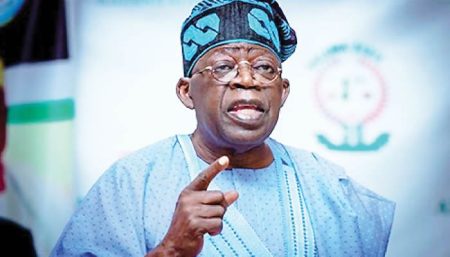The Nigerian government, through the National Health Insurance Authority (NHIA), has launched a significant initiative to alleviate the financial burden of cancer treatment for its citizens. This program, a collaborative effort with pharmaceutical giant Roche, aims to make crucial cancer medications more accessible and affordable through a cost-sharing mechanism. The core message of the program is clear: enrolling in the NHIA scheme is not only mandatory but also vital for Nigerians, especially those battling cancer, as it unlocks access to substantial financial support for their treatment. This initiative represents a proactive step by the government to address the often-devastating financial consequences of cancer diagnosis and treatment.
The NHIA-Roche cost-sharing initiative operates on a tripartite model, distributing the cost burden among the patient, Roche, and the NHIA. Under this arrangement, enrolled cancer patients are responsible for only 20% of the cost of designated cancer drugs. Roche, the pharmaceutical partner, absorbs a significant 50% of the cost, demonstrating a commitment to improving access to its innovative medications. The remaining 30% is covered by the NHIA, solidifying the government’s role in supporting its citizens’ healthcare needs. This collaborative approach effectively reduces the financial strain on patients, making life-saving cancer treatment a more realistic and attainable prospect.
The implementation of the NHIA-Roche cost-sharing initiative is strategically focused on expanding access to treatment across Nigeria. The program was officially introduced at the Obafemi Awolowo University Teaching Hospital Complex (OAUTHC) in Ile-Ife, Osun State, marking its extension to 17 new centers nationwide. This expansion is a crucial step in ensuring equitable access to subsidized cancer treatment across the country, reaching a wider population of cancer patients. The selection of OAUTHC as a participating center underscores the commitment to strengthening cancer care infrastructure and providing comprehensive treatment options, including vital follow-up care.
A key feature of the cost-sharing initiative is its immediate availability to newly enrolled patients. Even before the full activation of their NHIA registration, patients diagnosed with cancer can benefit from Roche’s 50% subsidy on designated drugs. This provision ensures that patients can access essential treatment without delay, potentially significantly impacting treatment outcomes. Once the NHIA enrollment is fully processed, the additional 30% coverage comes into effect, further reducing the patient’s out-of-pocket expenses. This phased approach demonstrates a commitment to both immediate support and long-term care for cancer patients.
The NHIA and Roche representatives emphasized the importance of health insurance in Nigeria. Mr. Olalekan Falode, the Osun State Coordinator of NHIA, highlighted the mandatory nature of health insurance and its role as a sustainable solution for managing the high costs associated with illnesses like cancer. He stressed that even the wealthy often struggle with the financial burden of cancer treatment, making the NHIA-Roche initiative a vital lifeline for many. Mr. Olayode Babarinde, Healthcare System Partner Policy Lead for Roche Nigeria, echoed this sentiment, pointing out the program’s goal of making innovative cancer medicines more accessible at designated centers across the country.
The launch of the NHIA-Roche cost-sharing initiative has been widely lauded as a positive development in Nigeria’s healthcare landscape. Prof. John Okeniyi, Chief Medical Director of OAUTHC, hailed the program as a model public-private partnership that has the potential to significantly strengthen cancer care, especially in the crucial area of follow-up treatment. This collaborative effort demonstrates the power of partnerships between government agencies and private sector stakeholders to address critical healthcare challenges and improve the lives of patients. The initiative is a testament to the growing recognition of the importance of affordable and accessible healthcare, signifying a significant step towards strengthening Nigeria’s healthcare system and improving cancer care outcomes for its citizens.














